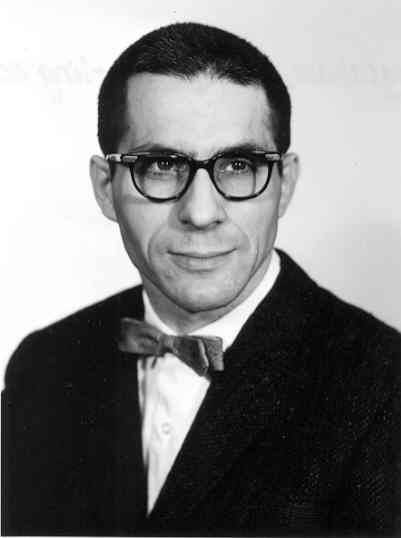Awards
- National Academies - 1966
- American Association for the Advancement of Science

Joseph Sterling Ingraham completed a Bachelor of Sciences degree in Chemistry at the University of Minnesota in 1943. He accepted a position as a research chemist at the Armor Co. in Chicago, where he assisted with studies leading to several patents on protein by-products. Ingraham enrolled in the graduate program at the University of Chicago in 1946 and received his M.S. in 1947 and his Ph.D. in biochemistry in 1950. For the next four years, Ingraham worked on the synthesis of a radioactive, chemically defined antigen with his faculty mentor, James W. Moulder, Ph.D. In 1954, Ingraham joined the Indiana University School of Medicine as Assistant Professor of Microbiology, where he developed a microbiology research program and was instrumental in establishing the department's graduate training program. Ingraham also organized a popular graduate course in Immunochemistry which he co-directed for thirty years.
By 1960, Ingraham's research team was actively engaged in defining the kinetics of antibody-antigen interactions, resulting in several important research publications. These studies involved precise measurements of serum of antibodies following antigenic stimulation of animals. Their results suggested that the induction of these humoral immune responses was linked to events mediated by immune cells. In 1961, Ingraham developed a method for isolating cells in the process of secreting antibodies. During a sabbatical leave at the Pasteur Institute in Paris, he worked out the details of this new method, first published in 1963, along with a similar approach developed at that time by the Nobel Laureate Niels Jerne. Their approaches provided an experimental basis for many subsequent observations elucidating the cellular activities of antibody secreting B lymphocytes, or plasma cells.
During his career, Ingraham was a member of several scientific societies including The American Chemical Society, The American Association of Immunologists, The American Society for Microbiology, Societe Francaise d' Immunologie, American Association for the Advancement of Science, Sigma Xi and the Indiana Academy of Science. In 1965, he was elected president of the campus chapter of the Sigma Xi scientific honor society, and in 1969 he served as president of the Indiana Branch of the American Society for Microbiology. Joseph S. Ingraham retired from Indiana University in 1987 with the title Professor Emeritus of Microbiology and Immunology.